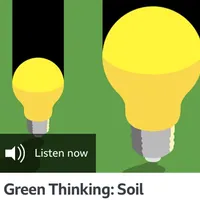Research with Impact
Living Lab
WESIC has set up an initiative to use the Warwick University campus as a 'Living Lab' find out more here:
https://warwick.ac.uk/sustainability/environment/takeaction/livinglab/
Tracking the history of polycyclic aromatic compounds in London through a River Thames sediment core and ultrahigh resolution mass spectrometry
New Fluorescent Sensor Enables Ultra-Trace Arsenic Detection in Living Cells
A team of researchers has developed an innovative biocompatible fluorescent sensor capable of real-time monitoring and ultra-trace detection of arsenic toxins within living cells—an advancement with significant implications for health safety and environmental monitoring.
The study, led by Rory P. Downham, Benedict Gannon, Diana Catalina Palacio Lozano, Hugh E. Jones, Christopher H. Vane, and Mark P. Barrow, introduces a novel approach by integrating a fluorescent receptor, 2-hydroxy 5-methyl isophthalaldehyde, into hierarchical organic-inorganic carriers. These carriers possess unique structural features, such as micro-hollow geodes and uniform cubic formations, allowing for highly selective arsenic detection even in complex biological environments.
Laboratory tests demonstrated that the sensor could detect arsenic concentrations as low as 0.149 parts per billion within HeLa cells, showcasing exceptional sensitivity while maintaining low cytotoxicity and high cell viability. This ensures its potential for safe application in biological monitoring.
This breakthrough offers a cost-effective, real-time solution for tracking arsenic contamination in biological systems, helping to mitigate arsenic-related health hazards. The study represents a significant step forward in environmental health and safety research.
The findings have been published in the Journal of Hazardous Materials.
Funding success for multidisiplinary environmental research
A Life Sciences - Engineering team from Wesic in collaboration with the University of Limerick and the Technical University of Munich has been awarded an £820 K research grant from the Green ERA Hub. The 3 year project will investigate approaches to manage soil nutrient status of agricultural soils using organic waste materials. In particular the strategies will be used to close nutrient cycles and reduce the need for application of environmentally damaging fertilisers to agricultural soils, while increasing soil carbon stocks and improving soil resilience. These practices will contribute to net zero particularly by reducing emissions of the greenhouse gas nitrous oxide from agricuture.
Sustainability in Plastics meeting: 13 July 2022
Overview:
As part of our efforts to achieve the Sustainable Developments Goals that have been set out by the United Nations, we must tackle the unprecedented levels of plastic waste that is generated by society. To this end, we are organising an event on ‘Sustainability and Plastics’, aiming to bring the key Warwick researchers who are actively involved in sustainability research across the plastic value chains, from polymer chemistry, processing and manufacturing, data science, environmental science, business management, social science and beyond. Through this event, we hope to build a Warwick community on ‘sustainable plastics’, to identify key challenges, bridge the knowledge gaps, link our research strengths and explore joint solutions. Warwick Cross Faculty Plastics Group - Research with Impact
Who should attend: academics across the University of Warwick
Register here: https://warwick.ac.uk/fac/sci/wmg/mediacentre/events/sip/
Revisiting Bouldnor Cliff
On 17 September, the BBC filmed an episode of Digging for Britain at the University of Warwick with Professor Robin Allaby about the Mesolithic finds that are being made at Bouldnor Cliff on the Isle of Wight.
Professor Allaby’s team have been investigating the sedimentary ancient DNA from the site which showed the controversial presence of wheat 8000 years ago suggesting contact with European farmers at the time (Smith et al. Science 347: 998-1001). In this episode Allaby’s team return to the site to investigate their findings further. Program to air towards the end of 2021.
Long-term effect of legacy hydrocarbon spills on soil microbial communities
Warwick-Australian team identify potential for natural attenuation of petrochemical degradation in ecosystems within the monsoon tropics.
(December 2021)
Human-soil relations
 Maria Puig de la Bellacasa speaks of her research on human-soil relations on a recent episode of the BBC3/AHRC Green Thinking podcast series exploring latest research on the climate and nature emergency ahead of COP26.
Maria Puig de la Bellacasa speaks of her research on human-soil relations on a recent episode of the BBC3/AHRC Green Thinking podcast series exploring latest research on the climate and nature emergency ahead of COP26.
Listen to Green Thinking: Soil
(September 2021)
Governing petrochemicals
Alice Mah talks about her work at the meeting ‘Governing Petrochemicals: the dual challenges of decarbonizing the plastics economy and phasing out virgin plastic production.
Watch the Governing Petrochemicals webinar
(August 2021)

